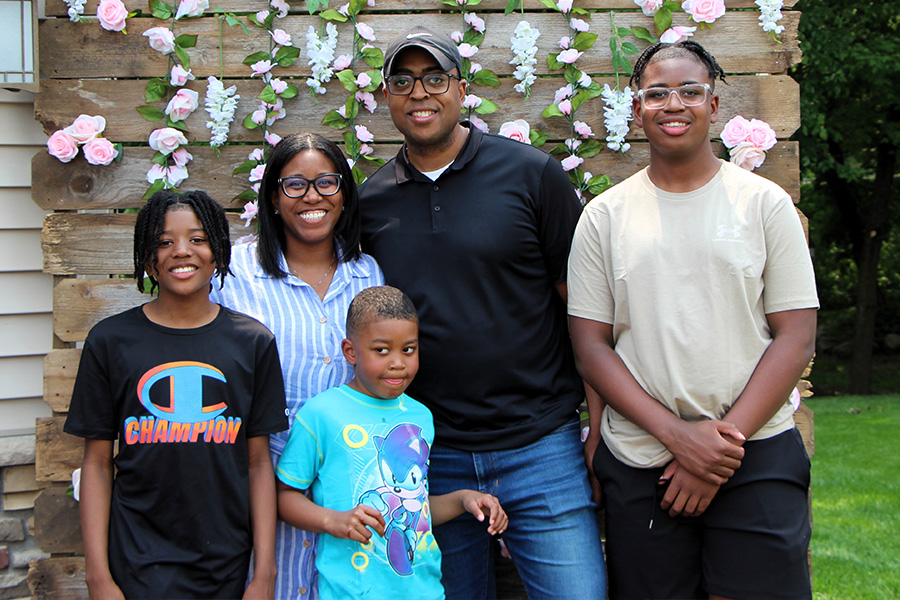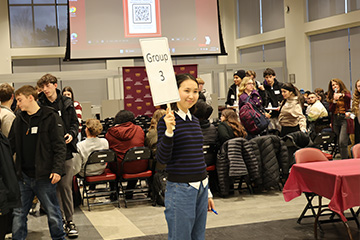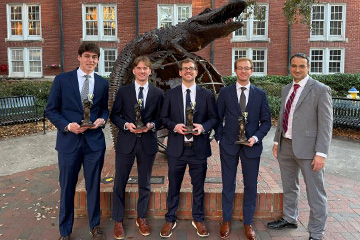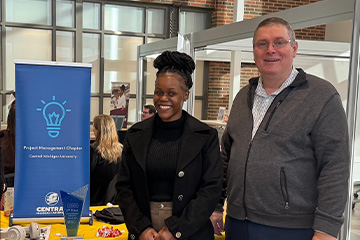Why mentorship and shared truth matter more than ever
CMU alumnus Jeremy Gibson shares how mentors, teamwork, and critical thinking build strong professional foundations.
When Jeremy Gibson graduated from Central Michigan University in 2006 with a degree in marketing and logistics, he carried more than academic knowledge into his career. He carried the lessons of mentorship, collaboration, and the pursuit of truth—principles that continue to guide his work as a supply chain director for Marathon Petroleum.
“Without Dr. Robert L. Cook, I wouldn’t be where I am today,” Gibson said, reflecting on the late professor’s influence. “He saw something in me that I didn’t see in myself. He set the tone for the expectations we had for ourselves and the logistics program.”
Gibson credits Dr. Cook with helping students connect with internships, challenging them through collaborative group projects, and creating an environment where honest feedback and support went hand-in-hand.
“He made sure you had an opportunity,” Gibson said. “But it was up to you to demonstrate your value. You wanted to reciprocate everything he was doing for you.”
The lessons stuck. Throughout his career, Gibson has embraced collaboration as the foundation for problem-solving—whether supporting contract negotiations at one of the country’s largest refineries or navigating global supply chain disruptions during the COVID-19 pandemic.
“When you unpack most problems, they come down to a lack of effective collaboration,” Gibson said. “Early and often, you have to engage stakeholders to understand the real problem. That’s true in school, at work, and even in relationships.”
It’s a philosophy rooted not just in teamwork, but in critical thinking. Gibson’s guiding principle is simple yet powerful: Believe as many true things as possible, and as few false things as possible.
“Companies don’t pay you to assess opinions—they pay you to assess data and offer recommendations,” he said. “You have to seek out empirical evidence. You can’t rely on conjecture.”
He sees this mindset as essential for young professionals entering today’s workforce.
“Find a mentor you can trust,” Gibson said. “Ask questions. Understand how things really work—not just how they’re supposed to work. Speak up when you have something to contribute, and make sure you can back it up.”
Gibson’s career with Marathon has spanned nearly two decades, including supporting major projects at the company’s Detroit refinery and supporting “turnarounds” —an industry term for a dedicated maintenance period that requires taking the refinery offline—at the company’s Garyville, Louisiana location. But for all his professional accomplishments, he’s proudest of the relationships he's built—especially with his family.
“I’m a family man,” he said. “Being a dad, a husband, a son—that’s my most important job. I’m intentional about it.”
When he’s not managing complex supply chains, you’ll likely find Gibson at a basketball tournament or track meet with his three sons, ages 6 to 12. And when he reflects on his journey, from a young student inspired by a cousin to a logistics leader at a Fortune 100 company, he’s clear about the role CMU played.
“CMU molded me,” he said. “It gave me the tools, the relationships, and the foundation I needed. I’m grateful.”
His advice to current students and recent graduates?
“Be yourself. Don’t be so hard on yourself. It's a marathon, not a sprint—and it’s all going to work out.”





